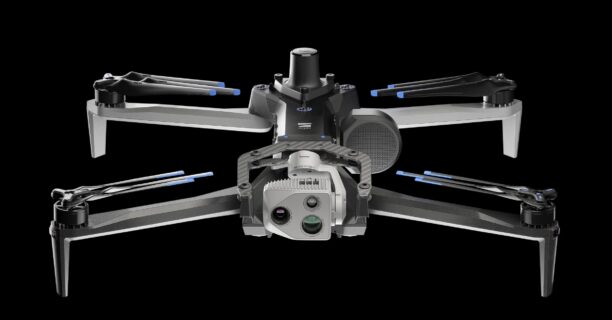China’s Ministry of Commerce (MOFCOM) recently announced the addition of 11 U.S. drone-related companies to its “Unreliable Entity List” (UEL). The move, disclosed on April 4, 2025, has escalated trade tensions between the two nations and could have significant implications for the affected firms and the broader drone industry.
The Companies Added to the List
The 11 U.S. companies placed on the UEL include:
- Skydio
- BRINC Drones
- Red Six Solutions
- SYNEXXUS
- Firestorm Labs
- Kratos Unmanned Aerial Systems
- HavocAI
- Neros Technologies
- Domo Tactical Communications (DTC)
- Rapid Flight
- Insitu
These firms represent key players in the U.S. drone sector, specializing in areas such as autonomous systems, tactical drones, and defense-related technologies.
Reason for Inclusion
China cited “military technology cooperation with Taiwan” as the primary reason for adding these companies to the UEL. Beijing claims that these activities undermine its national sovereignty, security, and development interests. Taiwan remains a sensitive geopolitical issue for China, which views the island as part of its territory. The Ministry of Commerce stated that these companies disregarded China’s strong opposition and engaged in activities it deems unlawful under Chinese regulations.
Consequences of Being on the List
The companies added to China’s Unreliable Entity List face a range of significant penalties that could disrupt their operations and business strategies. First, they are prohibited from engaging in import and export activities with China, cutting off access to critical components and materials often sourced from Chinese suppliers. This restriction is particularly concerning for drone manufacturers who rely on Chinese-made batteries and rare earth materials essential for production.
Additionally, these firms are barred from making new investments within China, limiting their ability to expand or establish partnerships in one of the world’s largest markets. Personnel associated with the listed companies may also face restrictions, including denial of entry into China and revocation of work or residency permits. These measures could hinder collaboration with Chinese counterparts and complicate international operations.
Financial penalties may also be imposed, depending on the severity of the alleged violations. Beyond direct sanctions, the designation could lead to reputational damage and strained relationships with Chinese suppliers and customers. For many of these companies, the combined impact of these restrictions could force them to reconfigure supply chains, seek alternative markets, or absorb higher costs—all of which could affect their competitiveness in the global drone industry.
Potential Impact on Business
For companies like Skydio and BRINC Drones, which have been gaining market share in defense and public safety sectors, these restrictions could be particularly damaging. Skydio has already reported challenges sourcing batteries due to its reliance on Chinese manufacturers. Additionally, smaller firms such as Neros Technologies may face difficulties pivoting to domestic or allied suppliers due to cost and scalability concerns.
The broader U.S. drone industry, valued at $9.2 billion in 2024, could experience ripple effects as supply chain disruptions impact production timelines and costs. Meanwhile, China’s actions may bolster DJI’s dominance in the global drone market by limiting competition from American firms.
Broader Context and Geopolitical Implications
This development is part of a larger pattern of retaliatory measures between the U.S. and China. The sanctions follow President Trump’s recent tariff increase on Chinese goods and highlight escalating tensions over Taiwan. The inclusion of drone companies underscores how unmanned systems have become a focal point in this geopolitical rivalry.
China’s UEL was introduced in 2020 as a countermeasure to similar U.S. actions targeting Chinese firms like DJI. Since then, it has expanded steadily, targeting entities involved in defense, technology, and other sensitive sectors. These tit-for-tat measures reflect a deepening divide between the two nations’ technological ecosystems.
The addition of 11 U.S. drone companies to China’s Unreliable Entity List marks a significant escalation in trade hostilities between the two countries. While Beijing frames this move as necessary for protecting its sovereignty and security, it poses substantial challenges for affected firms navigating supply chain disruptions and market access barriers. As tensions over Taiwan continue to mount, both nations are likely to see further economic and technological decoupling—a trend with far-reaching consequences for global industries.
Want DRONELIFE news delivered to your inbox every weekday? Sign up here.
Read more:


Miriam McNabb is the Editor-in-Chief of DRONELIFE and CEO of JobForDrones, a professional drone services marketplace, and a fascinated observer of the emerging drone industry and the regulatory environment for drones. Miriam has penned over 3,000 articles focused on the commercial drone space and is an international speaker and recognized figure in the industry. Miriam has a degree from the University of Chicago and over 20 years of experience in high tech sales and marketing for new technologies.
For drone industry consulting or writing, Email Miriam.
TWITTER:@spaldingbarker
Subscribe to DroneLife here.


